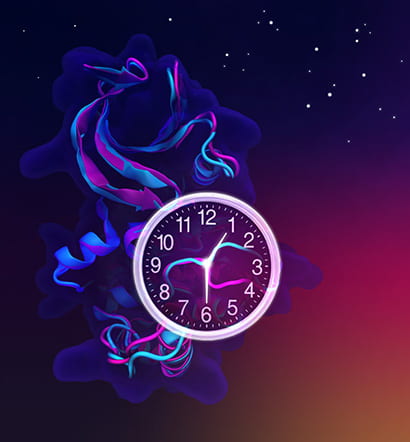Casein kinase 1 (CK1) regulates a core clock protein called PERIOD. A new study explains how mutations in either CK1 or PERIOD can throw off the timing of biological clocks in animals from fruit flies to humans. (Illustration by Clarisse Ricci/UCSD)
Tim Stephens | UCSC | February 13, 2020
A new study of molecular interactions central to the functioning of biological clocks explains how certain mutations can shorten clock timing, making some people extreme “morning larks” because their internal clocks operate on a 20-hour cycle instead of being synchronized with the 24-hour cycle of day and night.
The study, published February 11 in eLife, shows that the same molecular switch mechanism affected by these mutations is at work in animals ranging from fruit flies to people.
“Many people with sleep phase disorders have changes in their clock proteins,” said Carrie Partch, associate professor of chemistry and biochemistry at UC Santa Cruz and a corresponding author of the paper. “Generally, mutations that make the clock run shorter have a morning lark effect, and those that make the clock run longer have a pronounced night owl effect.”

